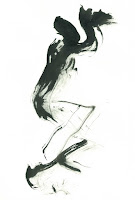In the matter of Baronetcy of Pringle and Stichill is a skirmish between two branches of the family to see who inherits the baronetcy, following the discovery of an intruder. He inherited the title but was discovered not to be the son of his mother's husband.
I blogged about the first hearing here. Today's hearing goes into the Scottish ramifications, so who better to be on his feet than Sir Crispin Agnew of Lochnaw Bt QC.
Court 1 contains a portrait of the eighteenth century magistrate Sir John Fielding. He took over the magistracy from his half-brother, Henry Fielding, who wrote The History of Tom Jones, a Foundling.
Tom's promiscuity isn't the problem - it's his parentage. His childhood sweetheart Sophia is admonished: 'And is it possible you can think of disgracing your family by allying yourself to a bastard? Can the blood of the Westerns submit to such contamination?'
Tom eventually finds out who his father is. My father wasn't so lucky. He experienced the stigma as a lonely child brought up by his grandmother in the same back street as - but not mixing with - his mother and her legitimate children.
My quest to find out about my father's other ancestors slammed up against a granite wall of Smiths. But I did find someone living.

Ted is kind and proud of his family. He isn't my blood relative, but the widower of one of my father's half-sisters.
Here he is with my unknown grandfather - Everyman, aka Antony Gormley. Ted has 13 grandchildren. They all know who he is.
Finally, it's Burns night so here's his poem about his first illegitimate child:
Welcome to a Bastard Wean
Thou's welcome, wean! Mishanter fa' me
If thoughts of thee or yet thy mammie
Shall ever daunton me or awe me,
My sweet, wee lady,
Or if I blush when thou shalt call me
Tyta or daddie!
What though they call me fornicator
And tease my name in country clatter?
The more they talk, I'm known the better.
E'en let them clash!
An old wife's tongue's a feckless matter
To give one fash.
Welcome, my bonnie, sweet, wee daughter!
Though ye come here a wee unsought for
And though your coming I have fought for
Both church and choir,
Yet, by my faith, ye're not unwrought for --
That I shall swear!
Sweet fruit of many a merry dint,
My funny toil is no all tint.
Though thou came to the world asklent,
Which fools may scoff at,
In my last plack thy part's be in't
The better half of it.
Though I should be the worse bestead,
Thou's be as braw and bienly clad
And thy young years as nicely bred
With education
As any brat of wedlock's bed
In all thy station.
Wee image o' my bonnie Betty,
As fatherly I kiss and daut thee,
As dear and near my heart I set thee,
With as good will
As all the priests had seen me get thee
That's out o' Hell.
Gude grant that thou may ay inherit
Thy mother's looks and graceful merit
And thy poor, worthless daddie's spirit
Without his failins!
'Twill please me more to see thee heir it
Than stocket mailins.
And if thou be what I would have thee
An' take the counsel I shall give thee,
I'll never rue my trouble with thee --
The cost nor shame of it --
But be a loving father to thee
And brag the name of it.




















































